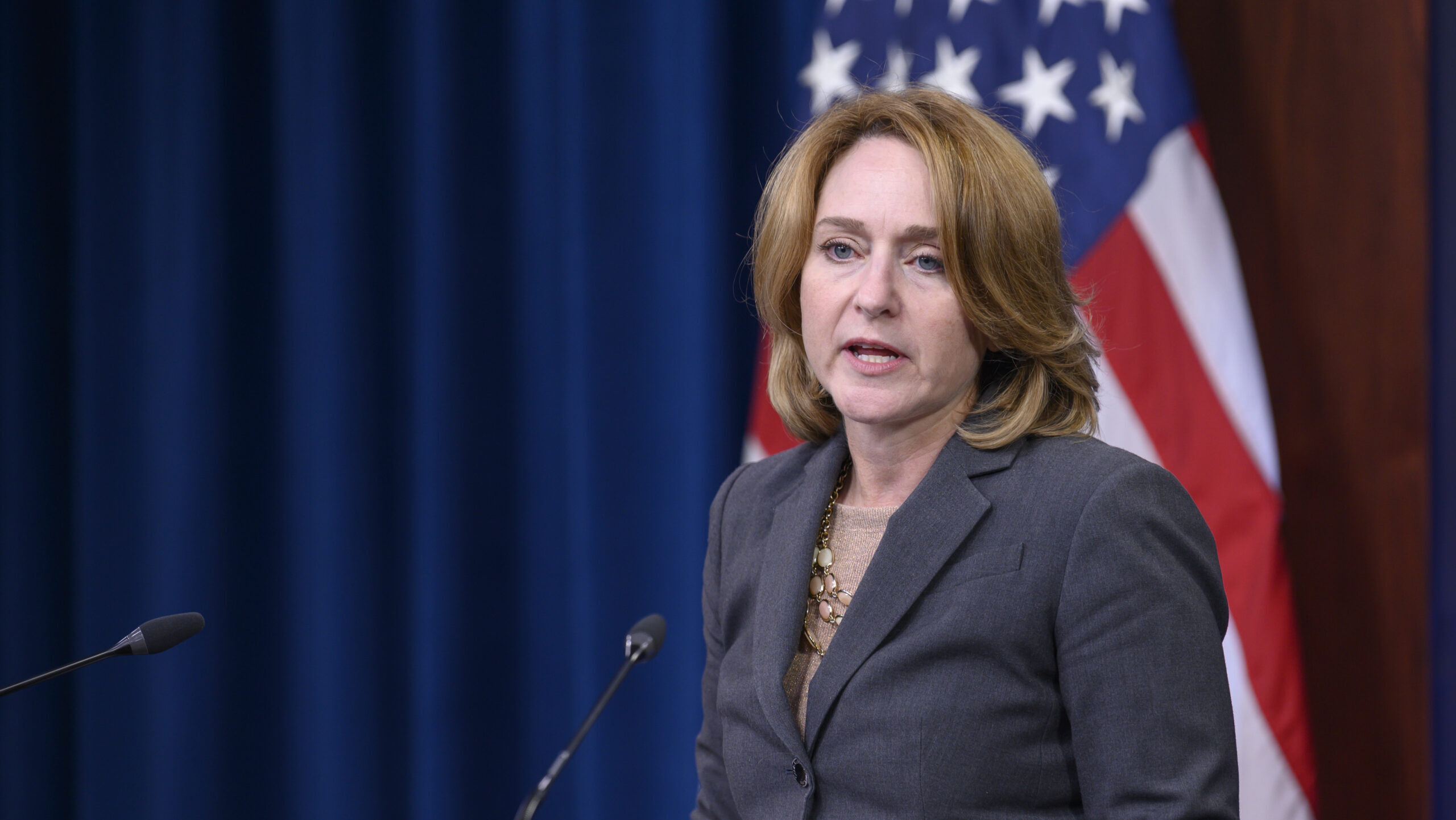
Deputy Secretary of Defense Kathleen Hicks. (DoD/Air Force Staff Sgt. Brittany Chase)
WASHINGTON — Pentagon leaders outlined plans to spend $1 billion over two years on drones for its new Replicator initiative, but are remaining mum about several factors, including their picks and funding streams.
Deputy Defense Secretary Kathleen Hicks announced today that the department is asking for lawmakers to pony up $500 million for Replicator this fiscal year, FY24, and is seeking an additional $500 million in the FY25 budget submission it just sent Capitol Hill.
“This is [a] pathfinder. It’s largely about reducing barriers inside our system and a process … but obviously there are dollars associated with [it],” she told reporters at the Pentagon.
In late August 2023, Hicks unveiled the Replicator initiative that is designed to find attritable autonomous systems already in the services’ or combatant commands’ pipeline and crank out thousands over the next two years. The department has since said it has selected the first tranche of systems but has not disclosed just which ones it picked.
RELATED: ‘Replicator’ revealed: Pentagon iniative to counter China with mass-produced autonomous systems
Since the initiative’s announcement there was also the question of who was on the hook to foot the bill for all those drones since the program was announced after the FY24 budget was made public.
Right now the Pentagon is still operating under a continuing resolution while lawmakers haggle over the FY24 budget, but Under Secretary of Defense Comptroller Mike McCord said the preferred option is to have Congress add $500 million to the FY24 spending bill to cover this year’s projected Replicator costs.
“The deputy [Hicks] has personally engaged with the committees on this … [asking that they] work with us to put some funding in the appropriations conference that we hope to see in two weeks,” he told reporters today.
If those dollars are not added into a bill signed into law by President Joe Biden, then the Pentagon may seek to “reprogram” dollars from elsewhere to fund the project.
For next year, FY25, the department requested that additional $500 million for Replicator but has not publicly disclosed if those dollars are gathered in one undisclosed pot or sprinkled throughout service programs that may or may not be made public.
The decision not to disclose the specific systems and funding streams may change, but it is currently in place at Hicks’s behest, McCord said.
“There was a debate which … about so-called ‘reveal, conceal’ [and] how much detail we want to put out,” he told reporters. “Given that if I crossed the bridge into putting everything out, I can’t go back. We’re sort of leaning on the side of not disclosing the details until we are confident that that’s what the deputy secretary wants to do.”






















